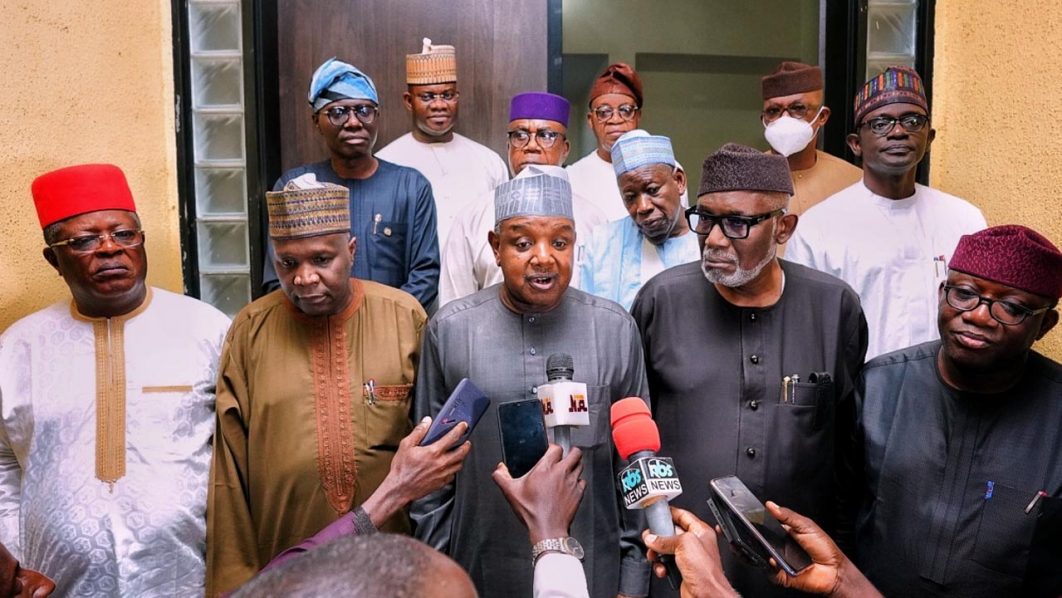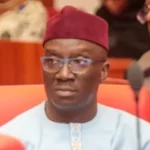Several local government councils in the country are on the brinks of collapse. This is against the backdrop of partial financial and nonpolitical autonomy occasioned by undue influence by governors, with grassroots underdevelopment as the aftermath. In some states, governors deny local government chairmen direct access to revenues. This makes it difficult for them to carry out development programmes. Governors also fail to conduct elections into chairmanship positions, but appoint their cronies as sole administrators or caretaker chairmen. Even when elections are conducted, they still impose their associates on the people to maintain their strong grip on the finances of the areas. Some governors also pay local government workers’ salaries based on percentage, while others reportedly use caretaker committees to siphon LG funds. Daily Trust on Sunday continues the series on the situations in local government areas in Kano, Katsina and Jigawa states.
Salim Umar Ibrahim (Kano), Tijjani Ibrahim (Katsina) & Mohammed Abubakar (Dutse)
- Govt Can’t Deny Us Access To firearms, Let Alone Stop Us From Buying Fuel – Bandits’ leader, Turji
- APC chairmanship race: Al-Makura opposes Buhari’s choice, storms Ondo to solicit support
Kano:2021 election a jamboree
In Kano State, local government elections were held in January 2021. But findings by Daily Trust on Sunday indicate that despite the over N2 billion said to have been budgeted for the exercise, the exercise was more or less a jamboree to install the loyalists of the governor and other power brokers around him.
A faction of the opposition party, People’s Democratic Party (PDP), loyal to Senator Rabiu Musa Kwankwaso, a former governor of the state, said it boycotted the exercise due to the anomaly and other factors. But the faction loyal to Ambassador Aminu Wali, a former Minister of Foreign Affairs, who reportedly participated in the exercise did not win in any of the 44 local government areas.
Katsina: Joint account policy bane of smooth administration
In Katsina, the state Independent Electoral Commission (KSIEC) had fixed April 11 for local government elections. Administration of the third tier in the last seven years is being run by Transition Monitoring Committees (TMCs) headed by Directors Administration and Finance (DAFs). It was due to lingering legal tussle between the state government and the dissolved local councils which ended in the Supreme Court in the third quarter of last year. This aggravated the already existing control of local government funds by the state occasioned by joint accounts.
A former chairman of one of the local governments areas who preferred anonymity said it was apparent that local government areas had become financially constrained through the policy of joint account being controlled by the state governors.
“We found it really difficult to run the affairs of local government due to the way our resources are being controlled by the state government,” he said.
“Some local governments areas don’t have enough funds to carry out the little development projects they have for their people. Others have enough resources but are denied access to them as the state governments dictate how they should be spent,” he added.
“As we all know, local government is closer to the masses than the other two tiers of government. It is at the local government that the common man can easily access his government representatives to lay complaints pertaining to healthcare issues, drinking water or other basic needs, unlike the state government which is inaccessible to the masses,” he added.
He said though it was true that there was a lot of embezzlement at the local government level when they were receiving their full allocation, the scenario was not uniform as others were doing very well in terms of rural development with what they were receiving.
Another former local government chairman, who also didn’t want his name mentioned, said: “All the little things that you think a rural dweller will need such as support when their wives give birth, hospital bills, boreholes repairs, culvert repairs and so on that improve people’s lives are easily done at the local level.”
“Some rural dwellers have never in their life, travelled to their state capital. How do you expect such people to get close to anybody in government that can help solve some of their small problems? It is a well known fact that abject poverty leads to criminalities or aggravate the problem of insecurity,” he said.

Jigawa: Cordial relationship between state, local governments
In Jigawa, while both the state chapters of Association of Local Government of Nigeria (ALGON) and National Union of Local Government Employees (NULGE) insisted there was a cordial working relationship between the state and local governments, there have been allegations of shortchanging in the payment of severance package for former local government council operatives.
For instance, the Chief Executive Officer of Jigawa Integrity Group (JIG), Bala Idris Kazaure, in a recent radio programme, had accused the Governor Badaru Abubakar-led administration of failure to pay local government councilors their severance entitlements.
Kazaure, who was former Special Adviser to the governor on Political Matters also alleged that the governor was working with the commissioner for local government council of diverting the funds meant for the former council officials. But the commissioner denied the allegations, saying that all those who deserved the pay had been settled.
ALGON boss, Bala Usman Chamo, also absolved the state government of the allegation, saying that the outstanding allowances were the accumulation of the commitments from 1999-2015. He added that since 2015 when Badaru administration came into office, no local government operative is being owed their allowances.
On their working relationship, Chamo said the governor did not interfere with the running of local government in the state, except as prescribed by the constitution.
“I’m happy to tell you that in Jigawa State, all the local governments are autonomous. The governor of Jigawa State approved the autonomy of the local government council into-to. He doesn’t influence or interfere with the affairs of the local governments apart from what the constitution provides.
“When we get statutory allocations, after the deductions are made, the local governments are made to handle their resources and they expend them according to their own plans and that is what we are doing in Jigawa,” he said.
However, Ibrahim Wayya, the convener of Kano Civil Society Forum (KCSF) opined that the chairmen of LGAs still operate at the mercy of the state governors who, most times, don’t allow them to utilize what is accruing to them for the development of their respective council areas.
“Most council chairmen are handpicked by governors who do their biddings,” he said.
A Kano-based activist, Maryam Ibrahim Garba, lamented how state governors push their sons into politics to cover up for them.
“When you give local government its funds, projects like primary school and primary health care are all under its responsibilities and not the state government. Honestly, it looks like governors now appoint ‘cashiers’ as local government chairmen. Most of them are their political subordinates or even their children who answer to their biddings all in the effort to have a smooth ride to collect the local government funds.”
The Head of Political Science Department, Umaru Musa University, Katsina, Dr Kabir Umar Yandaki, said there was a direct link between the financial constraints in the local governments and high rate of insecurity in the land.
“If local governments are financially constrained, there will be problem of lack of employment and majority of the youth will become redundant and unemployed. There is a saying: “An idle mind is a devil’s workshop.” So, they will definitely have to find a way of survival, even if it is criminal in nature.”
“This is why you see the increasing rate of criminalities in the local governments. So, inasmuch as local governments would not be allowed to be using their own money, this issue can never be contained easily,” he said.

Dr Yandaki said restoration of local government autonomy and powers to manage their resources must be restored.
“Even though there is a lacuna in the constitution with regards to the powers of the local governments, there is need for constitutional review so that local governments elections can be conducted alongside other elections in the country, without which these problems will continue to persist,” he said.
While several politicians in Kano, including some of the newly elected local government chairmen, are skeptical in discussing issues like this for the fear of being taken to the back seat, a young politician with the knowledge of happenings, who asked not to be named, said: “The governor has made them rubber stamp chairmen who accept whatever he brings to the table.”
“You cannot understand from afar. It is only when you are close to them that you understand how they are just managing. The state government has taken over everything. That’s why they hardly execute anything tangible in their domains because they can’t,” he added.
“If you look around, who among them is from another party? Majority of them are pushed by the state party to contest. We also know that they do the bidding of the state government in return for other things.
“For years, the politics of local government in Kano has become a thing of whoever was asked to contest from the governing party in the state would be the one to win the seat,” she said.
Efforts to get reactions from the Kano State governor were unsuccessful as calls and messages sent to his Chief Press Secretary, were not been responded to as at the time of filing this report. Similar efforts to get the reaction of the ALGON chairman were also not successful.
During several working-day visits to Kano Municipal, Gwale and Nassarawa local government area councils’ secretariat located in Kano metropolis, our reporter learnt that the chairmen of the councils have no specific time of coming to the office. Multiple sources at the council secretariats said the chairmen only come to the office mostly on Mondays and Tuesdays.
Our correspondent also gathered that activities around the council secretariats visited were at a low ebb. Staff were seen wandering around as they did not have any job to keep them busy. Many others were seen in groups relaxing and chatting under a tree shed.
One of the staff who spoke on condition of anonymity, said they only came to work not because they had anything to do, but to fulfill their own part, but nothing was going on.
“We are just here to chat, rest and go home. There’s no any activity happening as you can see. Politics has ridiculed everything,” he said.
When asked why the environment wasn’t lively as expected and how it had been in recent years, another staffer who spoke in anonymity said: “It is no more the same these days as the state government has hijacked everything from the local councils. What do you expect when local government chairmen are appointed to the position instead of being elected by the people?”
“They are all answerable and loyal to their governors and nothing happens at the state level without coming down here. Few administrative Staff that are key to the council are carried along somehow,” he said.
In Katsina, despite that council chairman election has not been held in the last six years, activities are still going on, especially in the area of administrative work.
When our reporter visited some secretariats, they were bubbling with activities.
A staffer of one of the councils who preferred anonymity said: “There is an event today in which some compensations with regard to road projects are being paid. That is why the secretariat is full. You will discover that in all the working days of the week, this place is full of activities.”
“Here, to be frank, official work is very much going on. You will find that the Director Admin and Finance (DAF) is on seat. The treasurer is on seat. The head of personnel is on seat. The unit head of central admin is also always on seat.
“The only activities that one could say are not as they used to be are those in which politicians and supporters would come for one favour or another. Now that that we don’t have elected chairman, we don’t see them as before,” he said.
However, in most of the rural LGAs, the situation is different as work is said to be done only partially.
“Honestly, when you go to some local government secretariats, you would find out that work is going on partially, unless if there is something to be deliberated upon; unlike when we had elected chairmen and councilors that you would see a lot of people who would come for one issue or another, especially from the rural communities,” a source said.

 Join Daily Trust WhatsApp Community For Quick Access To News and Happenings Around You.
Join Daily Trust WhatsApp Community For Quick Access To News and Happenings Around You.


